|
Forever and beyond will beauty last upon the fabric of this path we are all on. Life is a journey and a time of change, but the love and beauty that emits from the experience of life will last, will remain, and will persevere. Everything that goes through this life journey we lead as creations of a One, True, Loving Lord adds to the over-abundant beauty that is this light for our feet. From the spectacular of fireworks to the humblest of daily chores, everything holds within it an essence of glory, a glory given by the graces of the awakenings of the Spirit in this life. Such essence of glory protrudes into the days and nights, into our sensual stimulators by one path and one path alone, beauty. Beauty in the form of simple things, grand things, petty things, and profound things. Each passing moment has beauty in it to be recognized. All things bright and beautiful stem directly from our Divine Creator. All beautiful things reflect the love and care of the beautiful Father, abounding in glory and radiant light for all to experience.
Beauty can be seen in everything and everyone, if only we have the courage and wisdom to look hard enough. Such avenues of beauty are the various art forms of life, for example, works of art, music, literature, friendships, emotion, or moments indescribable by words. Art forms are anything that leave an impression on us, for life itself is the grandest of art forms that pours forth in everything it is. It is hard for us all to see the beauty in suffering or in times of darkness, but that doesn't mean it isn’t there, in the wrinkles and the silver linings that radiate beauty in a different light than what we are used to. For life, beauty is there. The Saints are good examples of the beautiful life, each one leading vastly different lives. Life is beautiful in each human experience, including the suffering and dark stuff. The Saints are good demonstrations of the beautiful human experience, including within it all sides of life: the good, the bad, and the ugly. Saint Kateri Tekakwitha, whose feast we celebrate today, is quite extraordinary and is a good example of the kind of beauty I am discussing here. Her life, besides her ardent Catholic faith, was normal for a girl in her Native American village. Her life was beautiful in her great faith, in her dealings with her family and those who did and could not understand her reasoning for believing that Christ Jesus was her Savior, and finally in her simple yet profound suffering and eventual martyrdom. She is the “Lily of the Mohawks.” Contemplate the Lily for a moment: the petals, the pollen, the beauty. So simple yet so complex, yet beautiful in its complexity. This is Saint Kateri. She is the lily, the beauty of a life lead in the faith of Christ. Personally, I have had a special devotion to Saint Kateri ever since fourth grade. My teacher chose then Blessed Kateri to be the one we all prayed for in our daily prayer time. Growing off of that initial, prayerful experience with Kateri, when she was finally canonized, I studied her life and virtues in depth, reflecting and praying intentions through her intercession. For eyes to see the beauty of the world and of everything you experience, pray to Saint Kateri, and like a lily may she blossom in all of us the joy of the beautiful Savior, whose blood painted the most beautiful image of all, our salvation. William Clemens is an Undergraduate Student of Theology and Religious Studies at The Catholic University of America in Washington, D.C.
0 Comments
“I don’t want to grow anymore.” This cantankerous proclamation has lately become my state of being. It sums up my exhausted emotions as I finish a two year service program, study for my comprehensive exams, move back into my Mom’s house and struggle to land a job. In grumbling to my program director that Growing up is hard and I don’t want to do it, she shared with me a piece of wisdom: “You are never done growing and you are never done with being challenged. In the growing and in the challenge you come to a deeper knowing of God.” While still dealing with the overwhelming idea of constantly growing, I have come to find truth in these words. I realized that not only is growing up hard, but being Catholic calls me to this constant growth- this constant conversion of heart!
Being Catholic calls me to encounter the messiness of challenges, the hardship of changes, and the realization that I will always be growing until I am with God. St. Augustine in his Confessions writes of this conflicted desire to want the virtues of God, yet not ready to struggle with the realities of attaining them. St. Augustine shares, “Give me Chastity, just not yet.” This is how I feel. I want holiness…just not yet do I want to have to confront the realities to attain it. I want to know God… but not deal with the messiness. I want to be filled with the Holy Spirit… but I don’t want to face the growth that the Spirit leads me to. Margaret Silf, in her book The Other Side of Chaos, writes, “But we will also take the journey in faith—not the kind of faith that knows all the answers and has mapped out the right and proper path, but the faith that says simply, “I don’t know, but I trust.” She goes on to say, “It matters that you are willing to open your heart to a wider, fuller reality, one in which over time, or perhaps beyond time, you will know that ultimately every painful harrowing of your life’s field, and every anxious tending of new and tender growth, are leading to a harvest that you can’t begin to imagine.” I try to know all the answers and map out all the “right” paths. I don’t know if I want to open my heart wider to a fuller reality. I want a plan, a job, certainty, etc. I want anything that will keep me from feeling these anxious and unsettling emotions of transition and change. Yet, as my spiritual director would say, that is not of God. God is in the messiness; he is in the hardship of leaving a place I have called home for two years. He is in the humbling action of moving back into my Mom’s home. He is found in the rejection letters coming in from jobs. There is no room for God and the work of the Spirit when I decide I know best and try to plan my path. So here I am, left with no other choice than to sit in the messiness of transition and chaos. My wanting to be with God and to know God has brought me here and it is here that I continue to learn to trust that He is with me. It may take many years, or my entire life, to see how this time led me closer to His will and to understand the need for restlessness and messiness. But, there is no doubt that by encountering the messiness and seeking God in it, I am growing in a way that will enable me to become the apostle He is calling me to be! So encounter your messiness, lean into your hardships, and know wherever you are God can be found. Pam Tremblay is a collaborator with the Catholic Apostolate Center. Editor's Note: This post was originally published on June 11, 2013 “Then God said, ‘Let Us make man in Our image, according to Our likeness; and let them rule over the fish of the sea and over the birds of the sky and over the cattle and over all the earth, and over every creeping thing that creeps on the earth.’ God created man in His own image, in the image of God He created him; male and female He created them. God blessed them; and God said to them, ‘Be fruitful and multiply, and fill the earth, and subdue it; and rule over the fish of the sea and over the birds of the sky and over every living thing that moves on the earth.’ … God saw all that He had made, and behold, it was very good” (Genesis 1:26-28, 31).
From this exaltation we begin our reflection on Father’s Day. Many countries set aside the third Sunday of June in honor of both fathers and fatherhood. It’s usually the time when dads are shown the appreciation of their families for all their love, protection, devotion, guidance, caring, wisdom, teaching, entertainment, discipline (ouch), cooking, support, shuttling around, mentoring, coaching, and/or generosity. It’s a totally fair trade-off but also no secret: fatherhood demands much of a man. Unfortunately, not all are blessed to have a father in their lives, and there are many circumstances which contribute to this. Thankfully, God Himself has provided a model for human fatherhood, someone who He entrusted His own Son to during the crucial formative years of Jesus’ human life: St. Joseph. We look to Saint Joseph as the perfect example of paternity, as he was given the honor of being the guardian of the Holy Family. St. Joseph is not directly quoted in scripture, but what about his actions? Do they speak louder than his words (or lack thereof)? It seems that Joseph’s most frequent biblical deed besides traveling is something men can easily relate to— sleeping before taking action (see Matthew 1:20 and 2:13)... but surely there must be more to being a father than this!? Of course there is! To me, being a true (Christian) father means being a Christ-like man who bears witness to the perfect love of God, and who is a virtuous man to his children, spouse, and to all he encounters. We hear a lot about Mary’s hugely consequential “Yes” (see Luke 1:38) to the Father’s will at the Annunciation and how this is the Blessed Mother’s complete giving of herself to God. In his own soft-spoken way, though, Joseph also gave his own “Yes” and similarly submitted himself to the will of God. Even with the extraordinary circumstances of his betrothed’s pregnancy, Joseph, in the end, places his trust in the divine will and accepts the paternal role God offers him as part of His plan. Like Mary, Joseph selflessly placed whatever desires and plans he had for his future second to what he had now been called to become— Jesus’ guardian and protector. It is this obedience that makes Joseph such a worthy role model for all men. Being righteous (see Matthew 1:19), Joseph knew he did not have all the answers; let alone the experience, for the fatherhood he was being called to. Instead, he stepped aside in faithful acceptance of God’s will. As Saint John Paul II so beautifully put it: What emanates from the figure of Saint Joseph is faith. Joseph of Nazareth is a “just man” because he totally “lives by faith.” He is holy because his faith is truly heroic. Sacred Scripture says little of him. It does not record even one word spoken by Joseph, the carpenter of Nazareth. And yet, even without words, he shows the depth of his faith, his greatness. Saint Joseph is a man of great spirit. He is great in faith, not because he speaks his own words, but above all because he listens to the words of the Living God. He listens in silence. And his heart ceaselessly perseveres in the readiness to accept the Truth contained in the word of the Living God. We see how the word of the Living God penetrates deeply into the soul of that man, that just man. (St. John Paul II, Daily Meditations) This past weekend we celebrated Father’s Day, and whether the father in our lives is a biological one, a father figure, or wears a Roman collar, take the time this week to personally thank both he and God for the impact he’s had on your life. Fatherhood is no easy task and is not for everyone, but the love that flows from this holy calling comes directly from Abba God, “our Father in heaven” (Matthew 6:9-13)! May we be obedient to and cherish these men at all times! Thomas Wong is an undergraduate at The Catholic University of America currently studying abroad in Rome, Italy. We celebrate Pentecost on June 8th, 50 days after Easter, to commemorate the Holy Spirit’s descent on Christ’s disciples after His Ascension. We are, in many ways, celebrating the birthday [E1] of the Church and our individual commitments to God.
The Holy Spirit empowers us to share our faith, to have the ability to open our hearts in understanding one another and God’s message. Through the gifts of the Holy Spirit (wisdom, understanding, counsel, knowledge, fortitude, piety and fear of the Lord), we become fully alive in our personal relationship with God so we can give better witness to His message. The Catechism of the Catholic Church says, “…the Church is sent to announce, bear witness, make present, and spread the mystery of the communion of the Holy Trinity” (CCC 738). We can use Pentecost as an opportunity to make our faith our own while sharing God’s word. By utilizing our individual talents and volunteering in some aspect of our church, we strengthen our faith and build community. I remember wanting to be an altar server after receiving my first Holy Communion in second grade. I began altar serving and continued to do so until I received Confirmation. Serving during the Mass allowed me, as a young girl, to better understand my Catholic faith. My parents remember me saying how I enjoyed altar serving because I had to pay attention (and stay awake) during 8 a.m. Sunday Mass. Assisting the priest on the altar, I began to fully understand and celebrate the Liturgy of the Word and Liturgy of the Eucharist every Sunday. I attended Catholic school and was able to make connections between Religion class and weekly Mass by serving during church service. Once confirmed, I continued to volunteer in my church as a lector as well as taught religion education to grade school children. Actively participating in my church allowed me to fully engage in my Catholic faith and grow spiritually. No matter our age, the Catholic Church encourages us to be active participants in Mass and in our Church. Through the work of the Holy Spirit, we can come to discover where the Church needs us and how we can best share the time, talent, and treasure God has given us. My parish hosts a ministry fair each year, which gives parishioners an opportunity to see other ministries within the Church and where we can best serve God and our community. Pentecost allows us to renew ourselves to the Holy Spirit. Pope Francis asks us in his daily Mass homily on May 19th this year to question ourselves: “What kind of heart do we have? … Is my heart fixed upon everyday gods or is it a heart fixed on the Holy Spirit?” It is easy for us to get wrapped up in life’s habitual tasks at home, work, with family, colleagues, etc. Pope Francis encourages us that the Holy Spirit “gives us strength, gives us the steadiness to be able to move forward in life in the midst of many events.” Dana Edwards is a recent graduate of the University of Florida. She currently resides in Tallahassee, Florida where she volunteers as a lector and with communication outreach at her local parish, Good Shepherd Catholic Church. The belief that faith and reason are complementary ways of coming to know the truth, rather than antagonistic rivals or competitors for one’s allegiance, has its foundation in the NT itself and, ultimately, in a person rather than a text.
When the earliest of Christian writers were searching for ways in which to articulate the meaning of what we might call the “Jesus Event,” i.e., the life, death and resurrection of Jesus of Nazareth, one of the first associations they made was between Jesus and the ‘wisdom’ [σοφία] or ‘reason’ [λόγος] of God. Drawing from the book of Wisdom, St. Paul refers to Christ as “the wisdom [σοφίαν] of God” (1 Cor 1:24). “All things were created through him and for him,” the Apostle states elsewhere, “He is before all things, and in him all things hold together” (Col 1:16-17). These latter remarks about Jesus, the identification of him with God’s divine wisdom, NT scholars agree pre-date St. Paul himself. They were, most likely, part of a hymn to Christ which the early Christian community used in their liturgical services. Thus, from the very beginning of Christianity, before the composition of the NT, Christians understood Jesus as the incarnation, the en-fleshment, of God’s divine wisdom; the wisdom by which God created, governs and sustains the natural world. The living embodiment of the ‘plan’ (ratio) according to which the cosmos was designed and functions. A bit later in Christian history, around the year 90, this belief was given its classic expression in the prologue to St. John’s Gospel: “In the beginning was the Word [λόγος], and the Word was with God, and the Word was God. He was in the beginning with God. All things came to be through him, and without him nothing came to be” (Jn 1:1-3). The Greek term for ‘Word’ [λόγος] in this translation can have many meanings: word, speech, language, an account or narrative, or an explanation. It can also mean, most importantly, ‘reason’ or ‘thought.’ So if we exchange translations, we can read the same passage as: “In the beginning was Reason and Reason was with God, and Reason was God. He was in the beginning with God. All things came to be through him, and without him nothing came to be.” With his obvious linguistic allusion to Genesis 1:1 [i.e., “In the beginning…”], the author of the prologue is affirming the divine nature of God’s reason and wisdom. A few verses later, of course, the author takes the further step of associating this Reason with the person of Jesus: “And the Word [Reason] became flesh and made his dwelling among us” (Jn 1:14). For the Catholic, then, as true now as was for these early Christian authors, it is in God, and especially through the person of His Son Jesus Christ, that Wisdom, Reason and Truth have their being. As Jesus said: “I am the way the truth and the life” (Jn 14:6) and “for this I was born and for this I came into the world, to testify to the truth. Everyone who belongs to the truth hears my voice” (Jn 18:37). Understanding that the world was created according to divine reason, and that the seeds of reason are to be found in the entire created order, the Catholic tradition has long affirmed the human capacity, and supported the human effort, to discover truth in the natural world by the light of human reason. It is true that the early Christian theologian Tertullian famously asked the question: “What has Athens to do with Jerusalem?” (De praescr. haeret. 7). But on that matter, and quite a few others, Tertullian was departing from the established Christian thought of his time. The Catholic tradition, on the other hand, acknowledges that since truth cannot be opposed to itself, the truths of the faith cannot contradict those of science or reason (cf. Aquinas SCG 1.7). Faith and reason are not competitors, but the two complementary ways in which humankind might come to know the truth. This point has been articulated throughout the Catholic intellectual tradition and, more recently, the Second Vatican Council stated that “methodical research, in all realms of knowledge, if it respects […] moral norms, will never be genuinely opposed to faith: the reality of the world and of faith have their origin in the same God” (GS § 36). Likewise, Pope St. John Paul II stated that faith and reason are two complimentary ways of coming to the truth because “the unity of truth is a fundamental premise of human reasoning, as the principle of non-contradiction makes clear” (FR § 34). The mutual necessity of both faith and reason is nowhere more evident than in the discipline of theology. In examining the application of reason to matters of faith, St. Augustine once wrote: intellege ut credas, crede ut intellegas (‘to understand so that you might believe, to believe so that you might understand’) (s. 43.9). More than half a millennium later, the Benedictine archbishop of Canterbury, St. Anselm, meditating on St. Augustine’s thought, would famously define theology as fides quaerens intellectum (‘faith seeking understanding’) (Cf. Pros. 1-2). In attempting to sum up this intellectual inheritance, this particularly Catholic way of viewing, inter alia, the relationship between faith and reason, many writers have taken to calling this hermeneutic the Catholic “both/and.” As opposed to looking at the world and seeing a multitude of choices which demand an “either/or” decision, the Catholic “both/and,” being sensitive to false dichotomies, sees the value – and in many instances the necessity – of each choice: nature and grace, action and contemplation, freewill and providence, invisible grace and material signs, and, of course, faith and reason. From the Catholic perspective, therefore, the relationship between faith and reason has never been an antagonistic one. Rather, the Catholic sees the proper use of one’s intellect as an activity which draws us nearer to God by seeking His Wisdom. Anthony Coleman teaches theology for Saint Joseph’s College Online This blog post was originally published on the St. Joseph’s College of Maine Theology Faculty Blog. Click here to learn more about our cooperative alliance with St. Joseph’s College Online. We have all been there – mid-morning on Ash Wednesday, awkwardly trying to hide the fact that our stomach is grumbling, wondering what actually constitutes as a “small meal”, and attempting to find it within ourselves to pray when all we can think about is those pangs of hunger. Or the classic Friday in Lent – where every meatless option seems unappetizing, and it is impossible to stop thinking about how badly we want chicken nuggets. Or that Lent when you decided to give up all sweets and you find yourself agonizing over whether or not a frosted donut really counts as a sweet . . . Why is this? Why is it that on days (or seasons for that matter) where we are called to fast or abstain from certain foods or other comforts, we feel conflicted about what the Church is calling us to do? There are any number of contributing factors (including the fact that chicken nuggets and donuts are delicious), but the heart of the matter is this: when we make sacrifices both big and small, we are often focused on what we are doing and forget the sacrifices of Lent are really about what is being done to us.
In her wisdom, the Church gives us Lent to take a step back - to simplify and to ultimately journey towards Christ in His suffering, death, and resurrection. During this season we are more aware of what we are giving up – of the sacrifices that we are making, and those things that we are temporarily missing out on enjoying. It can be all too easy to fall into the trap of grudgingly accepting what we have decided to sacrifice, instead of using it as an opportunity to better ourselves on the journey to Easter. Every time we make the mistake of thinking our own sacrifices about us, we are missing the point of this Lenten journey. The reality of the world that we live in is that sacrifice is underrated – our friends and people around us may not understand why we would willingly give up earthly comforts for a Church season. But we know differently. Every small sacrifice we make is about becoming more aware of the sacrifice that Christ made for us 2000 years ago. Instead of sighing in frustration about what we cannot have every time our stomach growls, we should utter a prayer of gratitude for the chance to conform our lives more to the life of Christ. We have the privilege to journey through these 40 days towards the cross of Good Friday. Although we all have to take up our own small crosses in the form of prayer, fasting, and almsgiving, the most important thing we will do is walk confidently towards the cross of Christ. The beauty of the cross is that it is bigger than any one thing that we can do, and the cross has the power to continually renew us in our mission as baptized Christians. So although we may be temporarily missing our favorite treat or meat on Fridays, we can take hope that our sacrifices are not about how much we can do, they are about making ourselves more ready to celebrate the Easter Sunday that comes after the Good Friday. Lauren Scharmer is a senior at the Catholic University of America studying Social Work & Theology and is active in both retreat and youth ministry in both the Archdiocese of Washington, D.C. and Diocese of Arlington. This past weekend I was fortunate enough to attend a conference on Catholic leadership. I attended a session that really made me think completely differently about vocations. I’ve always thought of the term “discernment” as only really applying to those thinking of entering the priesthood or religious life. While I’ve certainly thought about paths other than marriage, I always felt like I was not in any type of discernment process. But I have come to realize that we all have to discern, trying to figure out our calling.
I've always understood vocation as God calling us to a certain way of life, whether that be priesthood, religious life, married life, or even the single life. Any vocation has its challenges and rewards, and for me, trying to figure out exactly where God is calling me has been a challenging experience, yet one that has certainly deepened my own faith. One frustration I've always had is that I never had my "moment," that point in your life where you can see clearly what God's plan for you is. I have heard many people describe their own moments of realization and I've always longed for that clarity and joy which they seem to possess, knowing that they are fulfilling God's call in their life. Then one of the sessions I attended this past weekend changed my feelings on finding that "moment." The presenter talked about discernment not only as a process but also as a choice. We do have a choice in the direction our lives take, as God, in His infinite wisdom, gave us the gift of free will. We try to spend our lives living in a way that is pleasing to Him, but ultimately we do have choices. This presenter talked about examining our lives, finding where our strengths lie, and following a path which utilizes those talents. This is easier said than done, but it also made me think about my own discernment process. I had been waiting around for some great revelation in which God tells me exactly where He wants me and I have this realization that I know for certain where I need to be. The reality is, we rarely know anything for certain; we can only strive to do God's will here on earth. I recognize now that my vocation is something I need to actively pursue, rather than passively wait for. I challenge you to do the same. What are your strengths, what are you good at? Where can you serve God the most effectively in your own life? Don't wait for answers. Seek them out! Rebecca Ruesch is the Blog Editor for the Catholic Apostolate Center There’s a line from Coldplay’s “The Scientist” that pops in my head from time to time. Nothing seems to prompt it. The line just comes: “Questions of science, science and progress, do not speak as loud as my heart.”
As I sit with the words now, I notice why they speak to me. A lover of math and physics, questions of science have engaged me from the very beginning. At first it was dinosaurs, fossils, rocks, mountains, stars, planets – big, physical, earthy things. As I grew and learned through the complicated processes of science, the whole world became an infinitely complicated, continuously unfolding window into God’s creative mind. From the quantum entanglement of paired photon particles to the unimaginably long process of creation through evolution that could selectively form the creatures of this mysterious and complicated world, I stand in complete, utter fascination. Yet, as captivated as I am by science, its questions are not enough. For me, asking the probing questions of science isn’t about head knowledge, it’s about heart knowledge. The created world and all its mysteries, when uncovered and understood, stir in me deeper mysteries, mysteries of a different category and question. At some point I moved beyond asking what and how to asking why and what does it mean. As we celebrated Pentecost, the receiving of the Holy Spirit, I was reminded that the gifts we have been given are of both head knowledge and heart knowledge. Wisdom, understanding, knowledge, counsel, strength, piety, and fear of the Lord – these challenge and equip us to probe deeper, scientifically and metaphysically, into the mystery of being. Of all the gifts, fear of the Lord might sound the most antiquated, but it may also be the most relevant for today’s ongoing conversation with secularism. Understood as “wonder and awe”, rather than fear, this gift certainly explains my shift in focus from science to faith. And, I’m certain, explains the drive of so much scientific research today. Wonder is the starting point for two difficult conversations – one between science and fundamentalism and the second between faith and active secularism. Both the agnostic physicist and the pious mystic share the gift of a profound wonder and awe at the created world, whether or not they both believe the world had a creator. As we celebrate the gift of Pentecost, and as we give thanks for the Holy Spirit’s continued work, let us take time to wonder with someone about the intricacies of creation – whether it be through the eyes of science or the eyes of faith – and let us hope that this gift of wonder can begin a creative conversation of a different sort. Mark Bartholet is the Pastoral Associate for Faith Formation at St. Peter Catholic Church in Charlotte, NC. Ever consider yourself an apostle? Last year, the 42 year-old Andrew Lloyd Webber musical, Jesus Christ Superstar, returned to Broadway for another run. The Apostles reflectively sing during the Last Supper, “Always hoped that I'd be an apostle, knew that I would make it if I tried,” as if they really knew what they were getting into when they agreed to Jesus saying “Follow me!” Of course, they didn’t. It would be like you saying, “Always hoped I’d be a volunteer, knew that I would make it if I tried.”
At some point someone, even if that Someone was speaking within, invited you to consider doing volunteer service and now you are doing it. Did you know exactly what you were getting into when you applied? Like the Apostles, probably not. You hoped to serve and give of yourself. Now after some time of service, you have much more of an idea of what you are doing and what it means to give of yourself in service. Even if your time of service is not coming to an end right now, you might be asking a couple of questions: “What am I going to do next?” “What am I going to do with my life?” No need to panic over them. Spending time reflecting on these questions is important, but sometimes that reflection can move in the direction of narcissism.Obviously, service is focused on others rather than ourselves. An outward-focus, while inwardly deciding, can offer a possible way forward. A bit of wisdom from Pope Francis from this past Easter Sunday speaks to this needed balance: “Let us be renewed by God’s mercy, let us be loved by Jesus, let us enable the power of his love to transform our lives too; and let us become agents of this mercy, channels through which God can water the earth, protect all creation and make justice and peace flourish.” Notice that we are in the middle, not as passive participants, but actively living the mercy and love of Jesus Christ toward a world in need of care, to people in need of service. We are sent by him. We are apostles. Ever think of yourself as an apostle? We are. Each one of the baptized is an apostle of faith and charity to a world in need of the mercy and love of Jesus Christ. We share in his mission. This is our primary vocation (from Latin vocare – “to call”) in life. We have a vocation to be an apostle. Don’t believe me? I’m not the one who said it, Blessed John Paul II did. He was talking to my religious family, the Union of Catholic Apostolate, but his point was meant for all: “Continue to multiply your efforts so that what was prophetically announced by Vincent Pallotti, and the Second Vatican Council authoritatively confirmed, may become a happy reality, that all Christians are authentic apostles of Christ in the Church and in the world” (Homily of June 22, 1986). Blessed John Paul II was simply expanding on what was said during the Second Vatican Council in a document that he helped to write, the Decree on the Apostolate of the Laity. But, what does it mean to be an “authentic apostle of Christ in the Church and in the world?” It means living as one who is sent, and not simply living for ourselves or being only a follower. We are sharers in the mission of Christ in his priestly, prophetic, and royal offices (Catechism of the Catholic Church, n. 783-786). We are “consecrated” through baptism (priestly) to “witness in the midst of the world” (prophetic), in service, especially to “the poor and the suffering” (royal). Nothing passive here! Our vocation as apostles of Jesus Christ is an active one that moves us outward beyond ourselves to a world in need of his presence through us. Our vocation as baptized is our primary vocation. All of the other vocations as married, single, consecrated, or priest are all secondary to this primary vocation as follower of (disciple) and sent by (apostle) Jesus Christ. Each is a way one can live out the primary vocation. How does one decide? Through a process of discernment, one is called to be informed, pray, make a choice, and take action. I make it seem easy. The process is not an easy one, but necessary in order to make a truly informed choice about how to live our vocation as an apostle. You might not be ready to make a choice about what way to live this vocation for life, but living it out as an apostle is what you are already doing in your volunteer service and probably did long before now. Maybe the Apostles in Jesus Christ Superstar were not so far off then, we do want to be apostles; we only need to try. Fr. Frank Donio, S.A.C. is Director of the Catholic Apostolate Center. This piece was written for the Catholic Apostolate Center partner Catholic Volunteer Network, "Shared Visions" Newsletter. “I believe in dinosaurs!” tenaciously proclaimed the small third grade boy sitting in the front row. It seemed as though my conviction of teaching belief and our creed back-fired on me. My optimistic side gave me some consolation: “at least he believes in something.” And the third grader in me wanted to scream with him, “I love dinosaurs!” Throughout the next year I will be embarking on the adventure of teaching the Catholic faith to a bunch of third grade boys and girls. But the question that prompted the response of dinosaurs, “What do you believe?”, is not a question that ends with the completion of third grade religious education. It’s a question to be asked daily, to be wrestled with daily, and most importantly, to be lived daily.
Today, October 11th 2012, The Church begins her celebration of the Year of Faith. This is a faith that begins at baptism and brings us into the Triune God who is Love. In this faith we profess “the Father, who in the fullness of time sent his only Son for our salvation; Jesus Christ, who in the mystery of his death and resurrection redeemed the world; the Holy Spirit, who leads the Church across the centuries as we await the Lord’s glorious return" (Porta Fidei). The Holy Father is calling for us to CELEBRATE this faith! He is asking us to “rediscover the journey of faith so as to shed ever clearer light on the JOY and renewed enthusiasm of the encounter with Christ.” In short, he is asking us “what do you believe?” and “how do you live it?” Today, we also begin the renewal of our blog. As we, the Catholic Apostolate Center, celebrate this Year of Faith, we wish to share stories of lived belief through examples of discipleship and evangelization. We endeavor to be a place dedicated to reviving faith, rekindling charity, and forming apostles. It is a place to face the question “What do you believe?” Hopefully in our searching and questioning together we will be able to come up with an answer that goes beyond dinosaurs. Journey with us! Listen to our stories and share your own! Ask questions, post comments, share wisdom and resources. By virtue of our baptism, we are called to live our faith through the Christian charity. Journeying alongside one another, may we meaningfully celebrate this Year of Faith in order to shed light on the joy of our Catholic identity! Today I leave you with the question, “What do you believe?” Maybe it’s love, maybe it’s Christ, maybe it’s dinosaurs! St. Paul tells us to “examine everything carefully; hold fast to that which is good” (1 Thess 5:21). May our belief lead us to a deeper love of God, the Supreme Good! During this Year of Faith, may the love of Christ, rooted in belief, urge us on! (cf. 2 Cor 5:14) Pamela Tremblay is the Blog Editor for the Catholic Apostolate Center. |
Details
Archives
July 2024
Categories
All
|
About |
Media |
© COPYRIGHT 2024 | ALL RIGHTS RESERVED

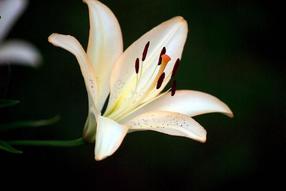

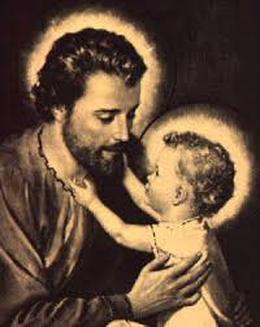
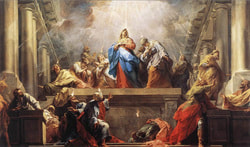
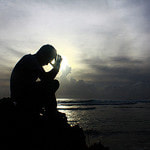
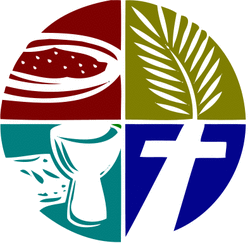
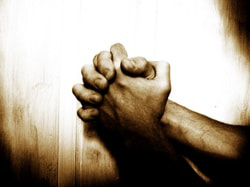
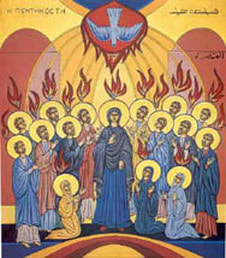
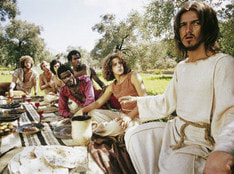
 RSS Feed
RSS Feed